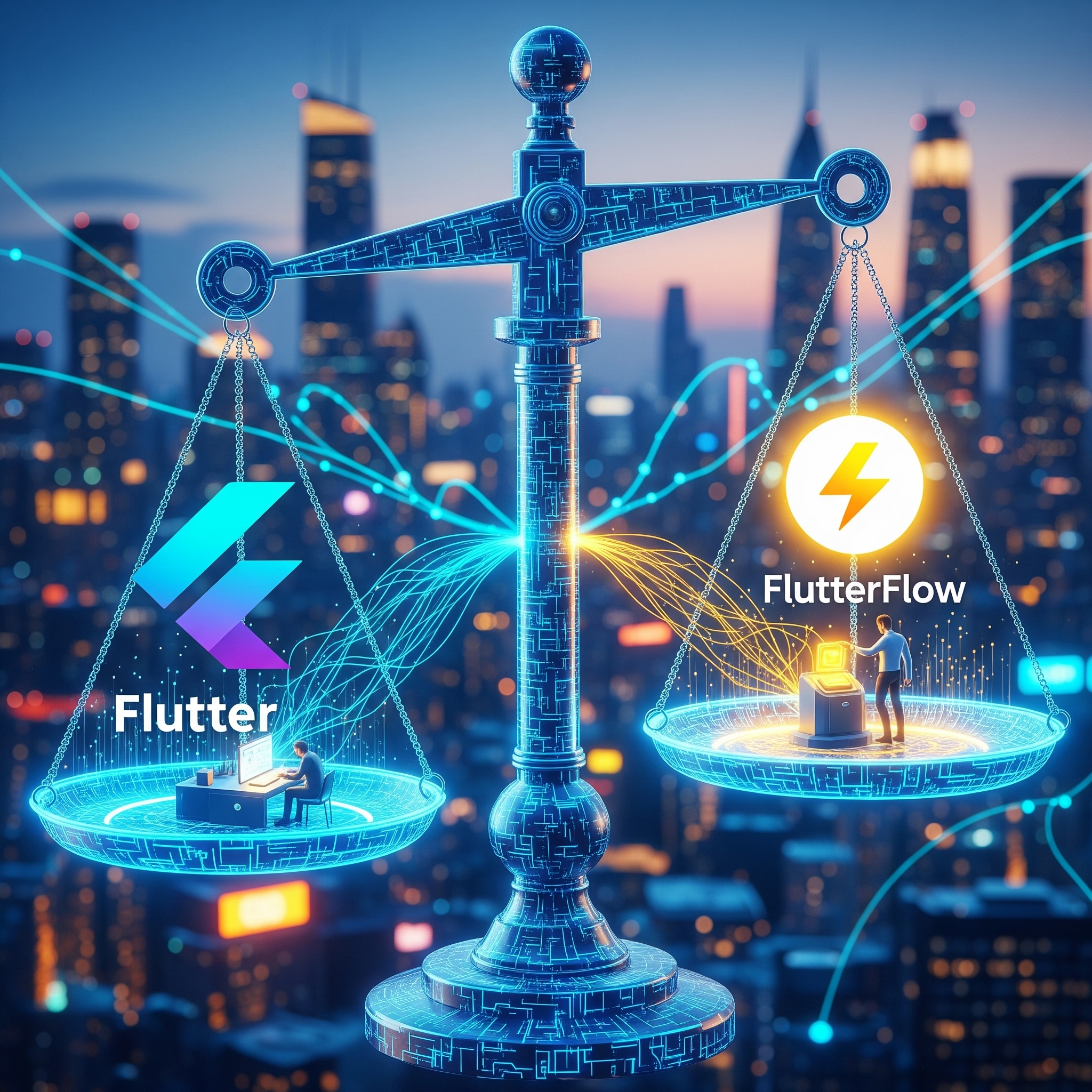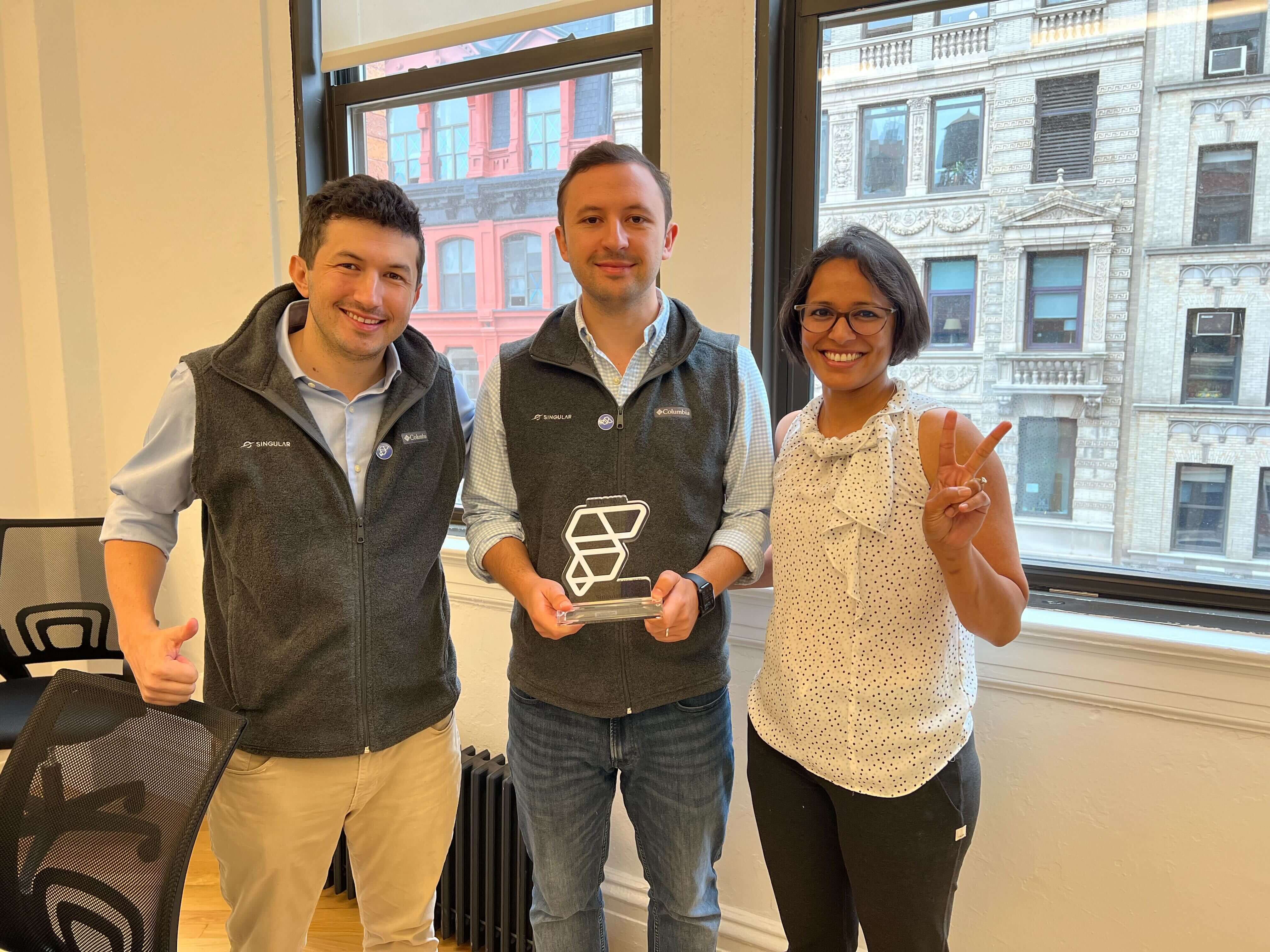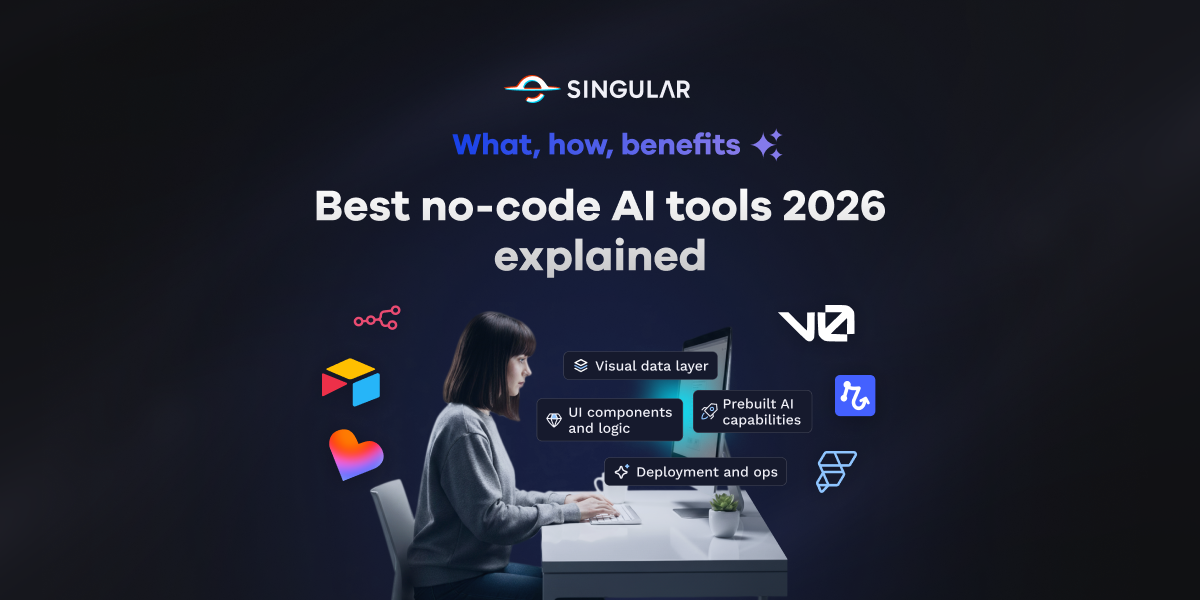Flutter vs FlutterFlow: 2025 SMB AI Process Guide

If you’re a founder, SMB owner, or entrepreneur planning to launch a mobile (or multi-platform) app in 2025, the Flutter vs FlutterFlow decision is a big one.
Both are powerful. Both are built on Google’s Flutter technology. But they serve very different needs, timelines, budgets, and team setups.
This guide breaks down the key differences—so you can choose the best tool for your stage today and plan for future scalability.
What Is Flutter? The Developer’s Full-Control Toolkit
Flutter is Google’s open-source UI framework that lets developers build high-performance mobile, web, and desktop applications from a single codebase using Dart.
It’s ideal when you need pixel-perfect UI, custom features, and long-term scalability.
Who Should Use Flutter
- Funded startups ready to scale
- SMBs with in-house engineers
- Tech companies building complex apps
- Businesses requiring custom, high-performance solutions
Advantages of Flutter
- Total code ownership → full flexibility for UI and logic
- Unlimited extensibility → if you can describe it, a developer can build it
- Near-native performance → smooth animations and responsiveness
- Long-term scalability → strong architecture for growth
Challenges of Flutter
- Steeper learning curve (Dart + state management patterns)
- Higher upfront cost (skilled devs or agencies needed)
- Longer MVP build times if requirements are evolving
What Is FlutterFlow? The Speed & Validation Accelerator
FlutterFlow is a no-code/low-code builder that uses drag-and-drop components while still generating clean Flutter code.
It’s like combining a design tool with app scaffolding—perfect for moving fast without hiring a large dev team.
Who Should Use FlutterFlow
- SMB owners and early-stage founders
- Agencies validating ideas
- Designers wanting to prototype
- Entrepreneurs needing quick MVPs
Advantages of FlutterFlow
- Rapid time-to-market → launch in weeks, not months
- Lower investment → subscription + light engineering
- Accessible creation → non-technical founders can iterate visually
- Exportable code → migrate to Flutter when scaling
Limitations of FlutterFlow
- Feature ceilings → niche or complex features may need custom code
- Component limits → fast, but within platform boundaries
- Scaling challenges → large apps may need code refactoring later
Flutter vs FlutterFlow: Key Differences Explained
Target Audience
- Flutter: Developers and technical teams needing deep control
- FlutterFlow: Founders, SMBs, and non-technical users wanting speed
Development Speed
- Flutter: Requires planning and coding—slower but robust
- FlutterFlow: Faster builds—ideal for MVPs and investor demos
Cost Structure
- Flutter: Higher upfront (developers or agencies)
- FlutterFlow: Lower initial cost (subscription + minimal dev)
Coding Requirement
- Flutter: 100% code-driven (Dart expertise needed)
- FlutterFlow: No-code with optional custom blocks
Flexibility & Customization
- Flutter: Unlimited customization and performance tuning
- FlutterFlow: Flexible for MVPs, workflows, and CRUD apps, but has limits
Scalability & Performance
- Flutter: Strong foundation for long-term apps
- FlutterFlow: Great for MVPs and early-stage growth; may need refactor later
When to Choose Flutter
Choose Flutter if:
- You need complex features (real-time, offline sync, custom graphics)
- Compliance or IP requires full code control
- You’re building a multi-year roadmap
- Your team already has engineering bandwidth
When to Choose FlutterFlow
Choose FlutterFlow if:
- You need to validate fast (MVP, prototype, investor demo)
- You’re on a limited budget
- You’re a non-technical founder wanting autonomy
- You plan to export code later for customization
Hybrid Path: Start Fast, Then Evolve
A common SMB strategy is to:
- Prototype in FlutterFlow → launch MVP in weeks
- Gather feedback + analytics
- Export Flutter code when complexity increases
- Transition into a full Flutter app
This staged approach reduces risk and avoids over-investing before product-market fit.
How Singular Innovation Helps 🚀
At Singular Innovation, we support you across both ecosystems:
- Rapid FlutterFlow MVPs → launch investor-ready builds quickly
- Custom Flutter Apps → scalable, production-grade, long-term architecture
- Migration & Refactor → evolve FlutterFlow apps into Flutter seamlessly
- Product Strategy → align technical choices with your growth goals
Choosing the Right Path in 2025
If you’re testing an idea or pre-revenue, FlutterFlow gives you speed and flexibility.
If you’re ready to scale long-term, Flutter offers control and performance.
👉 You don’t have to choose blindly—our team at Singular Innovation can help you map the trade-offs between cost, speed, and scalability.
Whenever you’re ready, here are 3 ways Singular Innovation can help you launch smarter:
Get a Free App Development Diagnostic – In 30 minutes, we’ll review your goals, budget, and timelines to recommend the best path—whether that’s FlutterFlow for speed or Flutter for scalability.
Build Your MVP in Weeks with FlutterFlow – Launch and validate your app idea fast using our no-code/low-code process, combining rapid design with functional, investor-ready builds.
Custom Flutter Development & Scaling – When it’s time to grow, we create high-performance, fully scalable Flutter apps built for complex features and long-term success.
https://www.singular-innovation.com/schedule-a-call
Heading
Dolor enim eu tortor urna sed duis nulla. Aliquam vestibulum, nulla odio nisl vitae. In aliquet pellentesque aenean hac vestibulum turpis mi bibendum diam. Tempor integer aliquam in vitae malesuada fringilla.
Mi tincidunt elit, id quisque ligula ac diam, amet. Vel etiam suspendisse morbi eleifend faucibus eget vestibulum felis. Dictum quis montes, sit sit. Tellus aliquam enim urna, etiam. Mauris posuere vulputate arcu amet, vitae nisi, tellus tincidunt. At feugiat sapien varius id.
Heading 3
Eget quis mi enim, leo lacinia pharetra, semper. Eget in volutpat mollis at volutpat lectus velit, sed auctor. Porttitor fames arcu quis fusce augue enim. Quis at habitant diam at. Suscipit tristique risus, at donec. In turpis vel et quam imperdiet. Ipsum molestie aliquet sodales id est ac volutpat.
Tristique odio senectus nam posuere ornare leo metus, ultricies. Blandit duis ultricies vulputate morbi feugiat cras placerat elit. Aliquam tellus lorem sed ac. Montes, sed mattis pellentesque suscipit accumsan. Cursus viverra aenean magna risus elementum faucibus molestie pellentesque. Arcu ultricies sed mauris vestibulum.
Heading 4
Morbi sed imperdiet in ipsum, adipiscing elit dui lectus. Tellus id scelerisque est ultricies ultricies. Duis est sit sed leo nisl, blandit elit sagittis. Quisque tristique consequat quam sed. Nisl at scelerisque amet nulla purus habitasse.

Heading 5
Morbi sed imperdiet in ipsum, adipiscing elit dui lectus. Tellus id scelerisque est ultricies ultricies. Duis est sit sed leo nisl, blandit elit sagittis. Quisque tristique consequat quam sed. Nisl at scelerisque amet nulla purus habitasse.
"Ipsum sit mattis nulla quam nulla. Gravida id gravida ac enim mauris id. Non pellentesque congue eget consectetur turpis. Sapien, dictum molestie sem tempor. Diam elit, orci, tincidunt aenean tempus."
Heading 6
Nunc sed faucibus bibendum feugiat sed interdum. Ipsum egestas condimentum mi massa. In tincidunt pharetra consectetur sed duis facilisis metus. Etiam egestas in nec sed et. Quis lobortis at sit dictum eget nibh tortor commodo cursus.
What is Singular Innovation
Lorem ipsum dolor sit amet, consectetur adipiscing elit. Suspendisse varius enim in eros elementum tristique.





